| Listing 1 - 9 of 9 |
Sort by
|
Book
ISBN: 3534060261 9783534060269 Year: 1982 Volume: 365 Publisher: Darmstadt Wissenschaftliche Buchgesellschaft
Abstract | Keywords | Export | Availability | Bookmark
 Loading...
Loading...Choose an application
- Reference Manager
- EndNote
- RefWorks (Direct export to RefWorks)
Bible --- Apocalyptic literature --- Apocalyptische literatuur --- Literature [Apocalyptic ] --- Literatuur [Apocalyptische ] --- Littérature apocalyptique --- #GROL:SEMI-228
Book
ISBN: 9789020208733 Year: 2013 Publisher: Utrecht Uitgeverij AnkhHermes / VBK-Media
Abstract | Keywords | Export | Availability | Bookmark
 Loading...
Loading...Choose an application
- Reference Manager
- EndNote
- RefWorks (Direct export to RefWorks)
scheppingsmythen --- Soemerië --- Egypte --- Rome --- Griekenland --- het mystieke Oosten --- het wilde Westen --- het Germaanse Europa --- kalpa's --- pralaya's --- kosmoi --- chaos --- pseudepigrafica --- Joodse apocalyptische literatuur --- neoplatonisme --- engelen --- de joods-christelijke traditie --- reïncarnatie --- het christendom --- esoterie --- westerse esoterie
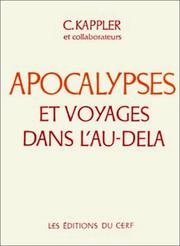
ISBN: 2204027014 9782204027014 Year: 1987 Volume: vol *2 Publisher: Paris Latour-Maubourg
Abstract | Keywords | Export | Availability | Bookmark
 Loading...
Loading...Choose an application
- Reference Manager
- EndNote
- RefWorks (Direct export to RefWorks)
Apocalyptic literature --- Apocalyptische literatuur --- Literature [Apocalyptic ] --- Literatuur [Apocalyptische ] --- Littérature apocalyptique --- Bible. --- Cosmology --- Eschatology --- History and criticism --- 228 --- -Eschatology --- Astronomy --- Deism --- Metaphysics --- Last things (Theology) --- Religious thought --- Theology, Doctrinal --- Literature, Apocalyptic --- Literature --- Apocalyps. Boek der Openbaring van Johannes. Apocalyptiek --- Cosmology. --- Eschatology. --- History and criticism. --- Littérature apocalyptique --- Apocalyptic literature - History and criticism
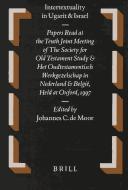
ISSN: 01697226 ISBN: 9004103562 9004497854 9789004103566 9789004497856 Year: 1996 Volume: 35 Publisher: Leiden New York : E. J. Brill,
Abstract | Keywords | Export | Availability | Bookmark
 Loading...
Loading...Choose an application
- Reference Manager
- EndNote
- RefWorks (Direct export to RefWorks)
Prophets of Old and The Day of the End argues for a historical and literary approach to apocalyptic. It tackles the problem of the origins of early Jewish apocalyptic by describing the correspondences and differences between some so-called protoapocalyptic and apocalyptic texts. The bulk of the book consists of exegetical studies of parts of Zechariah, Deuterozechariah and the Enochic Book of Watchers. Most of these studies offer new interpretations of the examined texts. The framework of the book presents fresh perspectives on apocalyptic. Some parts are more important to the scholar of post-exilic prophecy, and other parts to the student of the intertestamental literature. Yet, the overall approach and the conclusions bearing on the phenomenon of apocalyptic are of interest to scholars of both fields.
Apocalyptic literature --- Apocalyptische literatuur --- Literature [Apocalyptic ] --- Literatuur [Apocalyptische ] --- Littérature apocalyptique --- Ethiopic book of Enoch VI-XXXVI --- 224.98 --- Literature, Apocalyptic --- Zacharia --- 224.98 Zacharia --- Apocalyptic literature. --- Bible. --- Criticism, interpretation, etc. --- Literature --- Book of watchers --- Sacharja (Book of the Old Testament) --- Zacharias (Book of the Old Testament) --- Zechariah (Book of the Old Testament) --- Zekharyah (Book of the Old Testament) --- Theses --- Apocalyptic Literature --- Comparative Studies --- Bible. A.T.. Zacharie --- Bible. A.T.. Apocryphes. Hénoch --- Critique, interprétation, etc. --- Bible. A.T.. Apocryphes. Hénoch --- Littérature apocalyptique --- Critique, interprétation, etc.
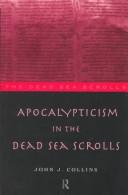
ISBN: 0415146372 Year: 1997 Volume: *1 Publisher: London Routledge
Abstract | Keywords | Export | Availability | Bookmark
 Loading...
Loading...Choose an application
- Reference Manager
- EndNote
- RefWorks (Direct export to RefWorks)
Qumrân --- Apocalyptic literature --- Apocalyptische literatuur --- Eschatologie [Joodse ] --- Eschatologie judaïque --- Eschatology [Jewish ] --- Literature [Apocalyptic ] --- Literatuur [Apocalyptische ] --- Littérature apocalyptique --- 229*318 --- -Literature, Apocalyptic --- Literature --- Qumran en het christendom --- History and criticism --- History and criticism. --- Dead Sea scrolls. --- -Qumran en het christendom --- 229*318 Qumran en het christendom --- -Literature --- Literature, Apocalyptic --- -229*318 Qumran en het christendom --- Jerusalem scrolls --- ʻAin Fashka scrolls --- Jericho scrolls --- Scrolls, Dead Sea --- Qumrân scrolls --- Rękopisy z Qumran --- Shikai bunsho --- Megilot Midbar Yehudah --- Dodezee-rollen --- Kumránské rukopisy --- Documentos de Qumrán --- Textos de Qumrán --- Rollos del Mar Muerto --- Manuscritos del Mar Muerto --- Manuscrits de la mer Morte --- Dödahavsrullarna --- Kumranin kirjoitukset --- Kuolleenmeren kirjoitukset --- Qumranhandskrifterna --- Qumranin kirjoitukset --- Qumran Caves scrolls --- Qumran --- Dead Sea Scrolls --- Eschatology --- History of doctrines --- Primitive and early church, ca. 30-600 A.D. --- End of the world --- Bible --- Jewish religion
Book
ISBN: 9780820339481 Year: 2015 Publisher: Athens : The University of Georgia Press,
Abstract | Keywords | Export | Availability | Bookmark
 Loading...
Loading...Choose an application
- Reference Manager
- EndNote
- RefWorks (Direct export to RefWorks)
In contrast to the prevailing scholarly con-sensus that understands sentimentality to be grounded on a logic of love and sympathy, Apocalyptic Sentimentalism demonstrates that in order for sentimentality to work as an antislavery engine, it needed to be linked to its seeming opposite--fear, especially the fear of God's wrath. Most antislavery reformers recognized that calls for love and sympathy or the representation of suffering slaves would not lead an audience to "feel right" or to actively oppose slavery. The threat of God's apocalyptic vengeance--and the terror that this threat inspired--functioned within the tradition of abolitionist sentimentality as a necessary goad for sympathy and love. Fear,then, was at the center of nineteenth-century sentimental strategies for inciting antislavery reform, bolstering love when love faltered, and operating as a powerful mechanism for establishing interracial sympathy. Depictions of God's apocalyptic vengeance constituted the most efficient strategy for antislavery writers to generate a sense of terror in their audience. Focusing on a range of important anti-slavery figures, including David Walker, Nat Turner, Maria Stewart, Harriet Beecher Stowe, and John Brown, Apocalyptic Sentimentalism illustrates how antislavery discourse worked to redefine violence and vengeance as the ultimate expression (rather than denial) of love and sympathy. At the sametime, these warnings of apocalyptic retribution enabled antislavery writers to express, albeit indirectly, fantasies of brutal violence against slaveholders. What began as a sentimental strategy quickly became an incendiary gesture, with antislavery reformers envisioning the complete annihilation of slaveholders and defenders of slavery. Situated at the intersection of love and fear, Apocalyptic Sentimentalism proposes a new genealogy for understanding literary sentimentalism as a complex negotiation of seemingly oppositional emotional economies. In the manuscript, Kevin Pelletier investigates the convergence of emergent sentimental practices with the fire and brimstone rhetoric of evangelical Christianity. Its aims are threefold: 1) to demonstrate that prophecies of apocalypse, and the fear they stimulate, are foundational to the U.S. sentimental tradition; 2) to analyze how abolitionist and antislavery writers adopted and revised the rhetoric of apocalyptic sentimentality in the years leading up to the Civil War; and 3) to examine how this discourse of apocalyptic sentimentalism was used to produce an innovative theory of selfhood, one that challenged the then-prevalent notion that African Americans were inherently inferior--physically, emotionally, and intellectually--than whites. The works of Harriet Beecher Stowe, Frederick Douglass, Martin Delany, and others are discussed, as Pelletier works to uncover this ignored tradition and demonstrate how nineteenth-century apocalyptic sentimentalists produced messianic selfhood in order to subvert established racial hierarchies.
African Americans in literature --- Afro-Americans in literature --- Afro-Amerikanen in de literatuur --- Afro-Américains dans la littérature --- Amerikaanse zwarten in de literatuur --- Apocalyptic literature --- Apocalyptische literatuur --- Black Americans in literature --- Emoties in de literatuur --- Emotions dans la littérature --- Emotions in literature --- Esclavage dans la littérature --- Esclaves dans la littérature --- Literature [Apocalyptic ] --- Literatuur [Apocalyptische ] --- Littérature apocalyptique --- Negroes in literature --- Noirs américains dans la littérature --- Slaven in de literatuur --- Slavernij in de literatuur --- Slavery in literature --- Slaves in literature --- Zwarte Amerikanen in de literatuur --- American literature --- Slavery in literature. --- Antislavery movements in literature. --- Apocalyptic literature. --- African Americans in literature. --- Emotions in literature. --- Literature and society --- LITERARY CRITICISM / American / General. --- History and criticism. --- History --- 19th century --- History and criticism --- Antislavery movements in literature --- United States --- Walker, David --- Criticism and interpretation --- Turner, Nat --- Fiction --- Stewart, Maria W. --- Stowe, Harriet Elizabeth Beecher --- Brown, John
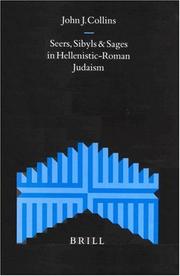
ISBN: 9004107525 9004495754 9789004107526 Year: 1997 Volume: 54 Publisher: Leiden ; New York ; Köln Brill
Abstract | Keywords | Export | Availability | Bookmark
 Loading...
Loading...Choose an application
- Reference Manager
- EndNote
- RefWorks (Direct export to RefWorks)
Apocalyptic literature --- Apocalyptische literatuur --- Ecrits de sagesse --- Literature [Apocalyptic ] --- Literatuur [Apocalyptische ] --- Littérature apocalyptique --- Littérature de sagesse --- Littérature sapientiale --- Littérature sapientielle --- Livres de sagesse --- Livres sapientiaux --- Sagesses (Littérature) --- Sapientiaux --- Sibillen --- Sibyllen --- Sibylles --- Sibyls --- Textes de sagesse --- Textes sapientiaux --- Wijsheidsliteratuur --- Wisdom literature --- Criticism, interpretation, etc --- History and criticism --- 933.32 --- -Sibyls --- -Literature --- Women prophets --- Literature, Apocalyptic --- Literature --- Geschiedenis van het Joodse volk: hellenistische tijd--(332-63 v.Chr.) --- -Geschiedenis van het Joodse volk: hellenistische tijd--(332-63 v.Chr.) --- 933.32 Geschiedenis van het Joodse volk: hellenistische tijd--(332-63 v.Chr.) --- -Literature, Apocalyptic --- Bible. --- Dead Sea scrolls. --- Oracula sibyllina. --- Jerusalem scrolls --- ʻAin Fashka scrolls --- Jericho scrolls --- Scrolls, Dead Sea --- Qumrân scrolls --- Rękopisy z Qumran --- Shikai bunsho --- Megilot Midbar Yehudah --- Dodezee-rollen --- Kumránské rukopisy --- Documentos de Qumrán --- Textos de Qumrán --- Rollos del Mar Muerto --- Manuscritos del Mar Muerto --- Manuscrits de la mer Morte --- Dödahavsrullarna --- Kumranin kirjoitukset --- Kuolleenmeren kirjoitukset --- Qumranhandskrifterna --- Qumranin kirjoitukset --- Qumran Caves scrolls --- Daniel (Book of the Old Testament) --- Daniyel (Book of the Old Testament) --- Taniel (Book of the Old Testament) --- Criticism, interpretation, etc. --- Bible. O.T. Daniel --- Dead Sea Scrolls --- Judaism --- History --- Post-exilic period, 586 B.C.-210 A.D. --- Talmudic period, 10-425 --- Wisdom literature - Criticism, interpretation, etc --- Apocalyptic literature - History and criticism
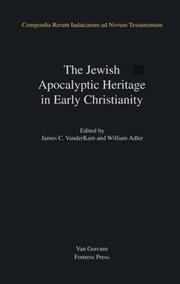
ISBN: 0800629728 9023229134 9004275177 9789023229131 Year: 1996 Volume: 4 Publisher: Assen Van Gorcum
Abstract | Keywords | Export | Availability | Bookmark
 Loading...
Loading...Choose an application
- Reference Manager
- EndNote
- RefWorks (Direct export to RefWorks)
This volume contains five chapters which investigate the early Christian appropriations of Jewish apocalyptic material. An introductory chapter surveys ancient perceptions of the apocalyses as well as their function, authority, and survival in the early Church. The second chapter focuses on a specific tradition by exploring the status of the Enoch-literature, the use of the fallen-angel motif, and the identification of Enoch as an eschatological witness. Christian transmission of Jewish texts, a topic whose significance is more and more being recognized, is the subject of chapter three which analyzes what happend to 4,5 and 6 Ezra as they were copied and edited in Christian circles. Chapter four studies the early Christian appropriation and reinterpretation of Jewish apocalyptic chronologies, especially Daniel's vision of 70 weeks. The fifth and last chapter is devoted to the use and influence of Jewish apocalyptic traditions among Christian sectarian groups in Asia Minor and particularly in Egypt. Taken together these chapters written by four authors, offer illuminating examples of how Jewish apocalyptic texts and traditions fared in early Christianity. Editors James C. VanderKam is lecturing at the University of Notre Dame; William Adler is lecturer at North Carolina State University. Series: Compendia Rerum Iudaicarum ad Novum Testamentum Section 1 - The Jewish people in the first century Historial geography, political history, social, cultural and religious life and institutions Edited by S. Safrai and M. Stern in cooperation with D. Flusser and W.C. van Unnik Section 2 - The Literature of the Jewish People in the Period of the Second Temple and the Talmud Section 3 - Jewish Traditions in Early Christian Literature
Apocalyptic literature --- Apocalyptische literatuur --- Apocriefe boeken (Oud Testament) --- Apocryphal books (Old Testament) --- Apocryphes (Ancien Testament) --- Bible. O.T. Apocryphal books --- Christelijke literatuur [Vroeg] --- Christian literature [Early ] --- Early christian literature --- Literature [Apocalyptic ] --- Literatuur [Apocalyptische ] --- Littérature apocalyptique --- Littérature chrétienne primitive --- Livres apocryphes (Ancien Testament) --- Vroegchristelijke literatuur --- 296*64 --- Joods messianisme en apocalyptiek --- 296*64 Joods messianisme en apocalyptiek --- Apocalyptic literature. --- Christian literature, Early. --- Christianity and other religions --- Judaism --- Church history --- Judaism. --- Relations --- Christianity. --- Christianity --- Ethiopic book of Enoch --- Bible. O.T. Apocrypha. Ezra, 2nd --- Relation to the New Testament --- Bible. O.T. Daniel IX, 24-27 --- Criticism, interpretation, etc --- History --- Primitive and early church, ca. 30-600 A.D. --- Church history - Primitive and early church, ca. 30-600. --- Apostolic Church --- Church, Apostolic --- Early Christianity --- Early church --- Primitive and early church --- Primitive Christianity --- Fathers of the church --- Great Apostasy (Mormon doctrine) --- Brotherhood Week --- Early Christian literature --- Patristic literature --- Old Testament apocryphal books --- Pseudepigraphal books (Old Testament) --- Literature, Apocalyptic --- Literature --- Ethiopic book of Enoch. --- Bible. --- Apocalypse of Ezra (Book of the Apocrypha) --- Apocalypse of Esdras (Book of the Apocrypha) --- Apokalypse des Esra (Book of the Apocrypha) --- Esdras (Book 2, Apocrypha) --- Esdras (Book 4) --- Hazon Ezra (Book of the Apocrypha) --- Ḥezyonot ʻEzra (Book of the Apocrypha) --- Book of Enoch, Ethiopic --- Enoch, Ethiopic Book of --- Book of the Ethiopic Enoch --- Äthiopischer Henoch --- Buch Henoch --- 1 Enoch (Apocryphal book) --- First Enoch (Apocryphal book) --- 1st Enoch (Apocryphal book) --- Relation to the New Testament. --- Criticism, interpretation, etc. --- Christianity and other religions - Judaism. --- Judaism - Relations - Christianity.
Book
ISBN: 291128920X 9782911289200 Year: 2000 Volume: *16 Publisher: Paris Berg international
Abstract | Keywords | Export | Availability | Bookmark
 Loading...
Loading...Choose an application
- Reference Manager
- EndNote
- RefWorks (Direct export to RefWorks)
La littérature apocalyptique, qui remonte à une tradition pré-chrétienne, se présente Comme une révélation de ce que seront les temps à venir. La naissance du royaume de Dieu y est annoncée au prix de la maîtrise du mal sur toute la terre, prélude nécessaire à son anéantissement par le bien. L'Apocalypse de Jean, le plus connu de ces textes, emploie un langage symbolique qui, au cours des siècles, sera interprété et revendiqué par divers mouvements de pensée, dont le millénarisme. A l'époque de la première croisade, l'Apocalypse, inspirant l'idée de précipiter la fin des temps, fondera véritablement l'unité du monde chrétien face à l'Orient. Mais au fil des siècles, et en dehors de quelques manifestations épisodiques, l'idée apocalyptique sera peu à peu ignorée. La révolution de 1789 et les bouleversements qu'elle entraîna, la confrontation entre l'Eglise et la raison conquérante, réactivèrent dans le monde catholique l'attente de la fin des temps. L'histoire se lira alors à travers des catégories religieuses : Dieu et son Eglise doivent combattre Satan qui mène un complot anti-catholique à travers la modernité. Enfin, une tradition plus spécifiquement eschatologique, à laquelle on peut rattacher le cardinal Lustiger et le pape Jean-Paul II, s'est construite progressivement après la Seconde Guerre mondiale. Elle voit dans le monde moderne le lieu d'un combat spirituel fondamental qui sera conclu par la Parousie. Etroitement liée, depuis une trentaine d'années, au renouveau du phénomène charismatique, cette tradition demeure paradoxalement vivace dans nos sociétés fortement sécularisées. Elle coexiste avec l'apocalyptisme né au siècle des Lumières. En effet, anti-maçonnisme, anti-judaïsme théologique et antisémitisme, anti-protestantisme et anti-mondialisme, expressions pour certains catholiques de la lutte contre une modernité qui bouleverse leurs structures mentales et sociales, après être entrés en convergence au XIXe siècle, ont créé une configuration intellectuelle singulière, propre aujourd'hui aux milieux traditionalistes. Leurs modes de représentations millénaristes ne prennent sens que confrontés aux autres traditions catholiques qui, au fil des siècles, ont fini par ignorer l'Apocalypse. Ayant enquêté sur les manifestations de l'apocalyptisme dans le monde moderne, l'auteur montre en quoi ce mode de pensée est une réalité centrale du catholicisme français, quels qu'aient pu être ses avatars.
'Apokálypsis 'Ioánnou --- Abughalimsis --- Apocalipse (Book of the New Testament) --- Apocalisse (Book of the New Testament) --- Apocalypse --- Apocalypse (Book of the New Testament) --- Apocalypse [Livre de l'] --- Apocalypse de Jean --- Apocalypse de saint Jean --- Apocalypse johannique --- Apocalypse of John --- Apocalypse of St. John --- Apocalypsis Johannis --- Apocalypsis S. Johannis --- Apocalyptic literature --- Apocalyptische literatuur --- Apokalypse --- Apokalypse (Book of the New Testament) --- Apokalypsin --- Bible. Apocalisse --- Bible. Apocalypse --- Bible. Apokalypse --- Bible. Apokalypsin --- Bible. Book of revelation --- Bible. N.T. Apocalypse --- Bible. N.T. Revelation --- Bible. N.T. Ru'ya --- Bible. New Testament. Apocalypse --- Bible. Nouveau Testament. Livre de l'Apocalypse --- Bible. Revelation --- Bijbel. Nieuw Testament. Openbaring van Johannes --- Boek der Openbaring --- Book of Revelation --- Catholic traditionalist movement --- Die Johannes-Apokalypse --- Die Offenbarung des Johannes --- Johannes [Openbaring van ] --- Johannes-Apokalypse --- Johannesapokalypse --- Johannesoffenbarung --- Katholiek traditionalisme --- La Révélation --- Literature [Apocalyptic ] --- Literatuur [Apocalyptische ] --- Littérature apocalyptique --- Livre de l'Apocalypse --- Mouvement traditionnaliste catholique --- Offenbarung des Johannes --- Openbaring [Boek der ] --- Openbaring van Johannes --- Revelation --- Revelation (Book of the New Testament) --- Revelation [Book of ] --- Revelation of St. John --- Revelation of St. John the Divine --- Revelation to John --- Ru'ya (Book of the New Testament) --- Sifr al-Ru'ya --- Traditionalisme [Katholiek ] --- Traditionalist movement [Catholic ] --- Traditionalistische beweging (Katholicisme) --- Traditionnalisme catholique --- Yohan kyesirok --- Church --- Eglise --- History of doctrines --- Histoire des doctrines --- Criticism and interpretation --- Fin du monde --- Eglise catholique --- Histoire --- 228 --- 236 "19" --- -Prophecy --- -Eschatology. --- End of the world in literature. --- Last things (Theology) --- Religious thought --- Theology, Doctrinal --- Forecasting --- Literature, Apocalyptic --- Literature --- Apocalyps. Boek der Openbaring van Johannes. Apocalyptiek --- Eschatologie. De novissimis--20e eeuw. Periode 1900-1999 --- History and criticism. --- Christianity. --- Millennialism --- France --- -Eschatology --- End of the world in literature --- History and criticism --- Christianity --- End of the world --- Prophecy - Christianity --- Eschatology --- Prophecy --- l'Eglisel'Apocalypse --- traditions pré-chrétiennes --- révélations --- l'Apocalypse de Jean --- le millénairisme --- l'unité du monde chrétien --- la Révolution de 1789 --- l'Eglise et la raison --- Satan --- anticatholicisme --- la modernité --- eschatologie --- le cardinal Lustiger --- le pape Jean-Paul II --- le Seconde Guerre mondiale --- combat spirituel --- la Parousie --- l'apocalyptisme --- siècle des Lumières
| Listing 1 - 9 of 9 |
Sort by
|

 Search
Search Feedback
Feedback About UniCat
About UniCat  Help
Help News
News